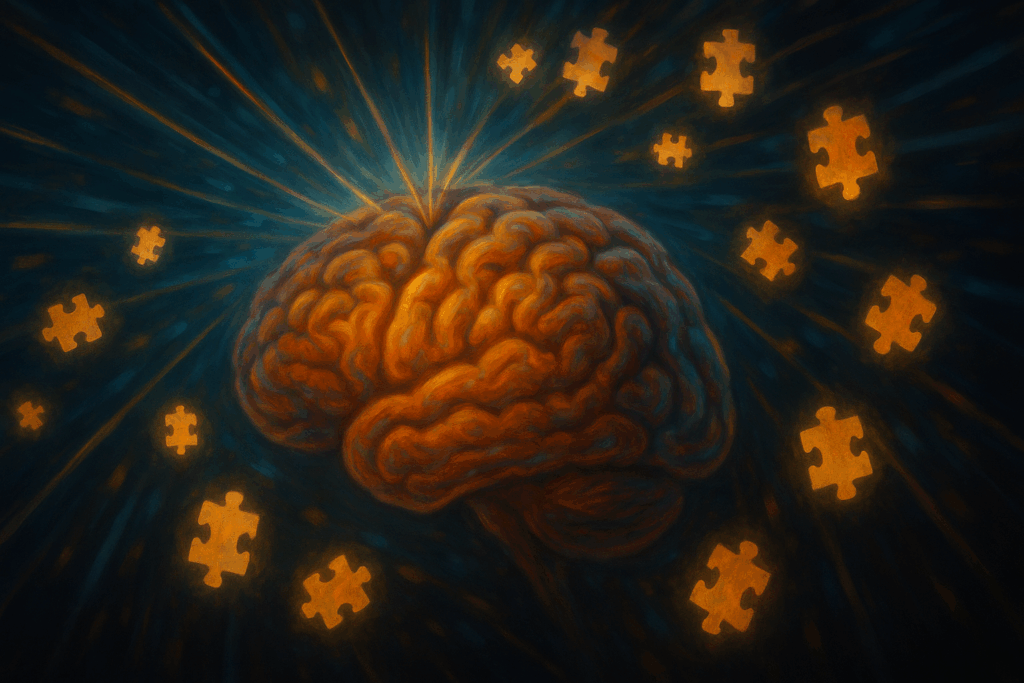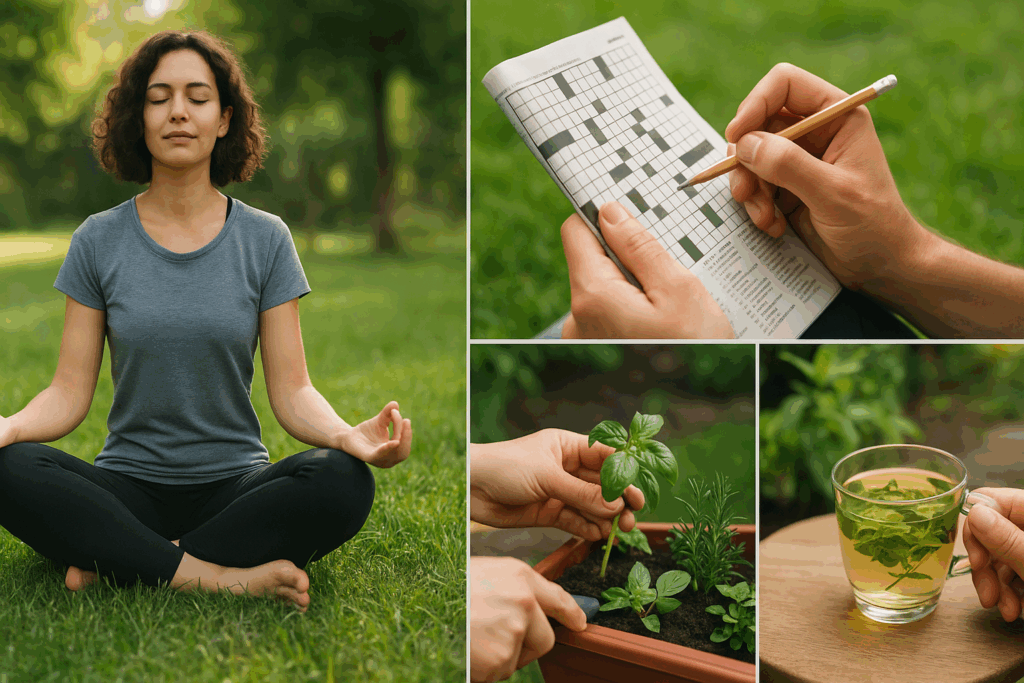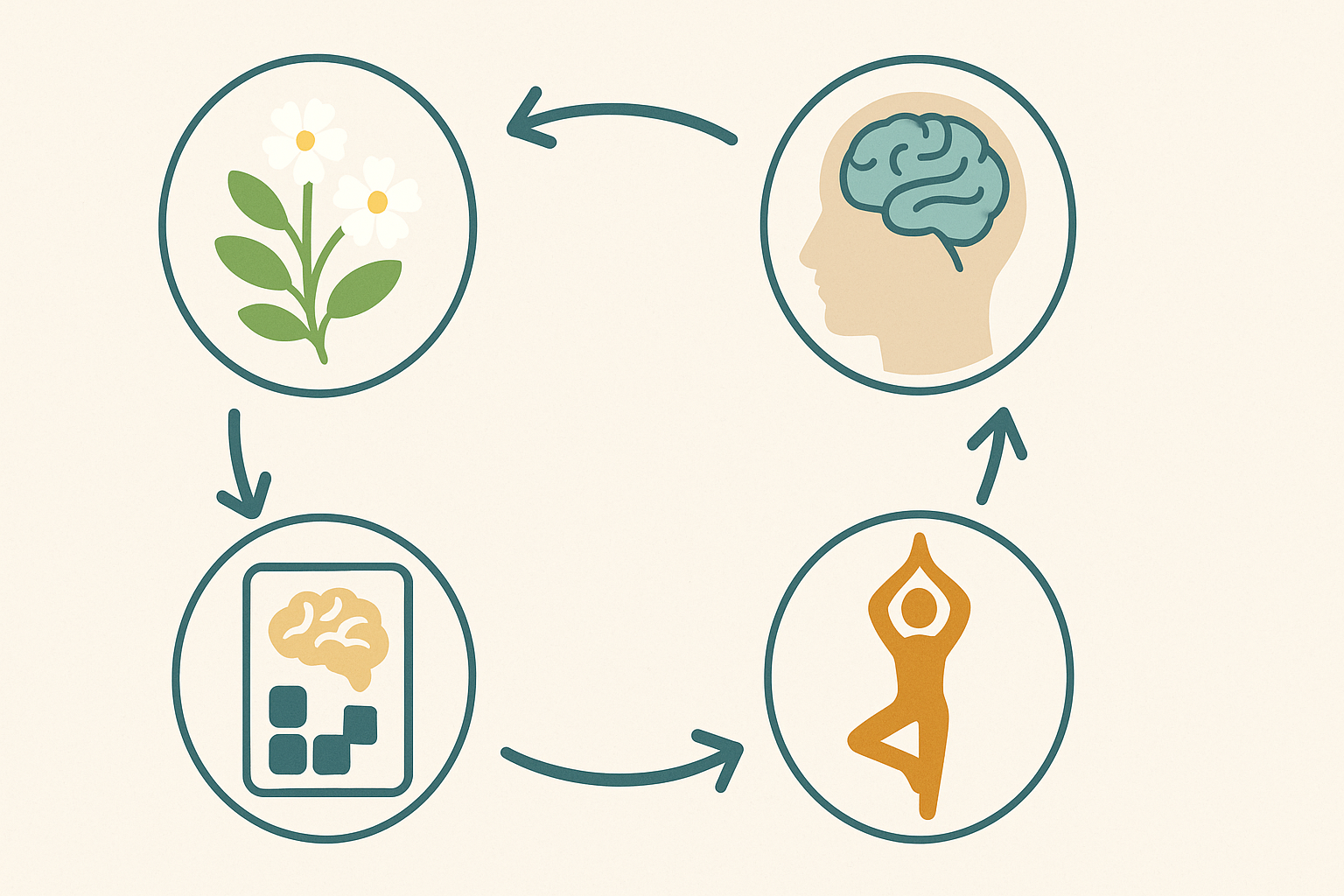Understanding ADHD and the Search for Natural Support
Attention-Deficit/Hyperactivity Disorder (ADHD) is a neurodevelopmental condition characterized by symptoms such as inattention, hyperactivity, and impulsivity. While traditional pharmaceutical treatments can be effective, many individuals seek complementary, natural options to help manage symptoms, particularly when concerned about medication side effects. The exploration of natural herbs for cognitive support reflects a growing interest in holistic wellness. In this article, we delve into the best herb for ADHD, examine scientifically backed natural ingredients that may foster focus and calm, and discuss how these choices might influence overall cognitive health. As we journey through this exploration, we will naturally integrate concepts like activities to prevent dementia and brain exercises for dementia to highlight how cognitive health strategies often overlap across different conditions.
You may also like: Best Herb for ADHD Support: How Natural Remedies and Herbs for ADHD Women May Help Boost Focus and Calm
The Link Between Cognitive Health, ADHD, and Dementia Prevention
Cognitive health is the cornerstone of mental performance, encompassing memory, attention, problem-solving, and emotional regulation. Strategies to enhance cognitive function in ADHD can also serve as brain training for dementia, helping reinforce the idea that early interventions matter. Incorporating mental exercises for dementia patients into daily routines, such as puzzles or memory games, mirrors the same practices used to support focus in ADHD. Whether discussing ADHD or age-related cognitive decline, activities to prevent dementia, brain games and dementia strategies, and memory exercises for dementia represent crucial tools for maintaining mental sharpness over time.

Best Herbs for ADHD: An Overview
Nature provides a treasure trove of botanicals that may offer cognitive and emotional support. Herbal remedies such as Ginkgo biloba, Bacopa monnieri, Rhodiola rosea, and Panax ginseng have captured researchers’ attention for their potential to enhance mental clarity, reduce anxiety, and promote emotional stability. By integrating these herbs thoughtfully, individuals may support brain training to prevent dementia while also addressing ADHD symptoms naturally. Let us explore these herbs in greater detail, appreciating how each interacts with neurological pathways to support focus and calm.
Ginkgo Biloba: Ancient Tree, Modern Brain Ally
Ginkgo biloba, one of the oldest living tree species, has long been revered in traditional Chinese medicine for its cognitive-enhancing properties. Studies suggest that Ginkgo may improve blood flow to the brain, enhance memory recall, and reduce symptoms of anxiety—effects beneficial for both ADHD management and dementia prevention. Incorporating Ginkgo into daily routines could resemble brain exercises for dementia patients, serving as a botanical ally in memory retention and cognitive agility. Moreover, engaging with such natural supports parallels the adoption of free brain exercises for dementia that prioritize accessibility and consistency.

Bacopa Monnieri: The Herb of Grace and Mental Endurance
Bacopa monnieri, often referred to as Brahmi in Ayurvedic medicine, is renowned for its nootropic properties. Research highlights its potential to boost memory, improve attention span, and reduce hyperactivity—critical benefits for individuals with ADHD. Bacopa’s antioxidant compounds may protect neurons from oxidative stress, a factor implicated in cognitive decline. Through the lens of alzheimer prevention activities, Bacopa presents an intriguing case for early cognitive support, reinforcing the idea that herbal supplementation can serve a dual purpose: improving immediate mental focus and laying foundations for long-term brain health.
Rhodiola Rosea: Adapting to Stress, Enhancing Focus
As an adaptogen, Rhodiola rosea helps the body resist physical, emotional, and chemical stress. This stress-buffering capacity translates into improved mood, reduced mental fatigue, and sharper concentration—qualities that make Rhodiola a compelling natural aid for ADHD. Stress management is also fundamental to dementia prevention; chronic stress is a known risk factor for cognitive decline. Incorporating Rhodiola not only supports focus and calm but can also be seen as a cognitive exercise for dementia prevention, building resilience against the erosive effects of stress on the brain.

Panax Ginseng: Energizing the Mind and Body
Panax ginseng, often called the “king of herbs,” is prized for its ability to promote mental performance and vitality. Research indicates that ginseng may enhance executive function, attention, and working memory—domains often impaired in ADHD. Simultaneously, it plays a role in how to prevent memory loss and dementia by stimulating neural activity and supporting neuroplasticity. Regularly using ginseng in wellness routines can be likened to engaging in brain games to prevent dementia, where the goal is to keep the mind active, adaptive, and vibrant.
Integrating Herbs into Holistic Cognitive Wellness
Selecting the best herb for ADHD is only part of the equation. True cognitive wellness comes from integrating multiple supportive practices. Combining herbal support with activities to prevent dementia, brain training for dementia, and regular engagement in cognitive exercises creates a synergistic effect. For instance, pairing Ginkgo supplementation with memory exercises for dementia, such as daily crossword puzzles or learning a new language, may amplify benefits. Similarly, using Bacopa alongside brain games and dementia prevention activities fosters an environment where mental resilience is continually cultivated.

Practical Strategies: From Herbs to Lifestyle Transformation
Adopting a holistic approach means weaving herbs into a broader fabric of healthful living. Establishing daily routines that include brain exercises for dementia patients, even when addressing ADHD, strengthens cognitive pathways through neuroplasticity. Mental exercises such as visualization, meditation, and mindfulness practices are accessible forms of free brain exercises for dementia that anyone can integrate. These techniques, when combined with herbal support, can create powerful cognitive interventions that foster both immediate focus and long-term brain health.

Frequently Asked Questions (FAQ) on Brain Health, Dementia Prevention, and Cognitive Exercises
1. Can everyday hobbies double as activities to prevent dementia?
Absolutely. Many hobbies offer cognitive stimulation powerful enough to serve as activities to prevent dementia. Gardening, learning a musical instrument, or even participating in amateur theater can challenge different parts of the brain. These creative activities combine sensory input, problem-solving, and memory retention—all crucial for brain training to prevent dementia. Long-term engagement in such hobbies has been shown to increase cognitive reserve, which acts as a protective buffer against dementia symptoms. Finding passion-driven projects can make mental exercises for dementia patients feel more like joyful exploration than structured work.
2. What are the best brain exercises for dementia that involve physical movement?
Movement-based brain exercises for dementia are incredibly effective because they combine cognitive and motor skills. Tai Chi, dancing to choreographed routines, or practicing yoga with memory-focused poses are excellent examples. These activities to prevent dementia stimulate the brain’s proprioceptive and executive functioning regions simultaneously. Newer research even suggests that dual-task exercises, such as walking while reciting poetry, could slow progression of cognitive decline. If you’re wondering how to stop dementia from progressing naturally, integrating brain and body activities is a promising strategy.
3. How do memory exercises for dementia differ from traditional memory games?
Memory exercises for dementia are more customized and therapeutic compared to general memory games. They focus specifically on preserving procedural memory (how to do tasks) and emotional memory (feelings associated with events). For example, asking a dementia patient to recreate a favorite recipe from memory or recall the steps to a beloved dance can yield better engagement than abstract memory drills. These targeted practices are among the most beneficial cognitive exercises for dementia because they tap into emotionally significant neural pathways. Personalization is key when developing brain training to prevent dementia using memory-based methods.
4. Are there new trends in brain games and dementia care programs?
Yes, there’s an exciting evolution in the design of brain games and dementia care. Emerging programs increasingly use adaptive technology—games that adjust difficulty based on real-time cognitive performance. Virtual reality experiences are also being tested as alzheimer prevention activities, providing immersive cognitive engagement through safe, simulated environments. These innovations offer new pathways for brain games to prevent dementia by creating emotionally rich, novel experiences. With technology, even free brain exercises for dementia are becoming more accessible and customized. As research grows, we may see cognitive gaming becoming a standard therapy tool, not just a supplementary activity.
5. How can families incorporate free brain exercises for dementia into daily life?
Simple daily rituals can easily double as free brain exercises for dementia. For instance, narrating steps while cooking together (“First we wash the vegetables, then we chop them…”) can reinforce sequencing and language skills. Turning errands into memory games (“Let’s remember five grocery items without writing them down”) offers natural memory training. These casual interactions serve as organic activities to prevent dementia and require no special equipment or apps. Additionally, practicing gratitude journals or reminiscing over old photo albums strengthens emotional cognition, an often overlooked aspect of brain exercises for dementia.
6. What are lesser-known strategies on how to prevent memory loss and dementia?
Beyond well-known advice like staying physically active and eating healthily, new research suggests that purpose-driven living significantly impacts dementia risk. Engaging in activities that offer a sense of meaning—like volunteer work or mentorship—activates brain regions linked to emotional regulation and executive function. These activities to prevent dementia foster resilience by strengthening neural networks associated with complex decision-making. Purposeful action complements formal cognitive exercises for dementia and is increasingly recognized by experts as crucial for brain training to prevent dementia. It’s not just what you do, but why you do it that matters.
7. How effective are group-based brain training programs for dementia?
Group-based brain training for dementia provides additional social stimulation, a critical but often underestimated element of brain health. Programs combining peer interaction with cognitive challenges—such as storytelling circles or team-based problem-solving—offer double benefits: mental stimulation and emotional support. Cognitive exercises for dementia patients are significantly more effective when participants feel connected and engaged. Group dynamics can also reduce feelings of isolation and depression, both known risk factors for cognitive decline. When designing or selecting activities to prevent dementia, choosing socially enriched options can amplify results.
8. What role does emotional health play in brain exercises for dementia?
Emotional health is deeply intertwined with cognitive health, particularly in brain exercises for dementia patients. Chronic stress can accelerate brain aging, while emotional stability enhances memory retention and neuroplasticity. Programs that integrate mindfulness, art therapy, or music therapy are emerging as powerful cognitive exercises for dementia. These modalities not only train memory and attention but also support emotional regulation, a vital piece in how to stop dementia from progressing. Addressing both mind and mood makes brain games and dementia care plans more holistic and effective.
9. Are there signs that brain games to prevent dementia might not be working?
Yes, and it’s important to monitor them. If a person consistently shows frustration, boredom, or withdrawal during brain exercises for dementia, it may indicate that the activities are too difficult, too easy, or not personally meaningful. Successful brain training for dementia should lead to a sense of accomplishment, not defeat. Choosing brain games and dementia exercises that align with the individual’s interests and abilities is critical. Adjusting activities proactively can help maintain motivation and ensure cognitive challenges remain beneficial rather than burdensome.
10. How might future science change how we approach brain training to prevent dementia?
The future of brain training to prevent dementia will likely involve highly personalized approaches using biomarker profiling and AI-driven cognitive feedback systems. Imagine cognitive exercises for dementia patients tailored not just by symptoms but also by brain scans or genetic markers. Scientists are already exploring neurofeedback devices that adapt training tasks to the brain’s real-time electrical activity. These developments promise a major leap forward in how to prevent memory loss and dementia effectively. Over time, brain games to prevent dementia may evolve into medically prescribed digital therapeutics, just like medication or physical therapy.

How Herbal Synergy Supports ADHD and Dementia Prevention
The concept of synergy is central to holistic health. Rather than relying on a single herb or intervention, combining multiple strategies often yields superior outcomes. For example, a wellness plan that incorporates Bacopa for memory, Rhodiola for stress resilience, and activities to prevent dementia through cognitive training offers a comprehensive approach. Such integration reflects how to stop dementia from progressing while simultaneously managing ADHD symptoms naturally and sustainably.


